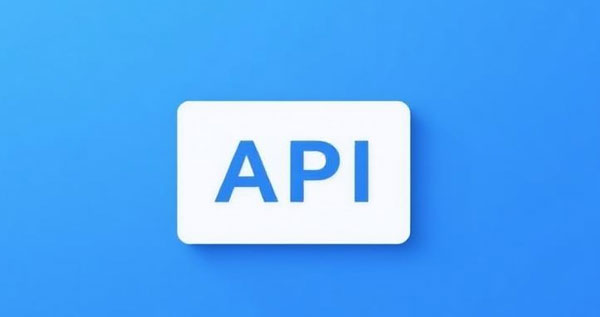How to Efficiently Extract Data Using Web Scraping and Rotating Residential Proxies: Technical Analysis and Implementation
1. Introduction
In fields such as artificial intelligence (AI), business intelligence (BI), and market analysis, obtaining high-quality data is crucial. However, many websites implement strict anti-scraping mechanisms, such as IP restrictions, CAPTCHA verification, and behavior analysis, making data extraction increasingly difficult.
Web scraping automates the retrieval of web content, while rotating residential proxies help bypass IP blocking, ensuring the stability and sustainability of data collection.
This article will explore technical principles, common challenges, solutions, and practical coding implementations, demonstrating how developers can efficiently combine web scraping and rotating residential proxies to enhance data acquisition.
2. Core Concepts of Web Scraping
2.1 Basic Principles of Web Scraping
The typical workflow of a web scraper includes:
Sending Requests: Making HTTP requests to target websites to retrieve HTML content.
Parsing Data: Extracting structured data using BeautifulSoup, XPath, or Regular Expressions.
Storing Data: Saving extracted data in databases, CSV, JSON, or other formats.
Looping & Enhancements: Handling pagination, dynamic content, and retry mechanisms.
2.2 Types of Web Scraping
Type | Description | Key Tools |
|---|---|---|
Static Scraping | Parses HTML source code, suitable for static websites |
|
Dynamic Scraping | Simulates browser execution of JavaScript |
|
Distributed Scraping | Uses multiple machines to improve efficiency |
|
3. Anti-Scraping Mechanisms and the Role of Rotating Residential Proxies
3.1 Common Anti-Scraping Techniques
IP Blocking: Frequent requests from the same IP address may result in bans.
CAPTCHA Verification: Detects automated behavior by requiring manual input.
Behavior Analysis: Monitors mouse movements and clicks to differentiate humans from bots.
Rate Limiting: Restricts the number of requests per minute/hour.
3.2 Key Advantages of Rotating Residential Proxies
Residential proxies use real user IPs, making them highly effective at bypassing IP blocking and anti-scraping mechanisms.
Compared to traditional datacenter proxies, residential proxies offer the following benefits:
Higher authenticity: IPs are sourced from ISP providers, making them less likely to be blocked.
Supports IP rotation: Ensures that each request uses a different IP address.
Geolocation capabilities: Allows selection of IPs from different countries, states, and cities, bypassing regional restrictions.
LuckData provides over 120 million rotating residential proxy IPs covering 200+ locations worldwide, ensuring 99.99% uptime, making it an excellent choice for developers conducting large-scale web scraping.
4. Implementing Rotating Residential Proxies in Web Scraping
4.1 Using LuckData Residential Proxies for Scraping
Steps:
Set up the LuckData proxy.
Use
requeststo send a request through the proxy.Parse the response data.
Python Code Example
import requests# Configure LuckData proxy
proxy = "http://Account:Password@ahk.luckdata.io:Port"
proxies = {
'http': proxy,
'https': proxy,
}
# Send request
url = "https://api.ipify.org?format=json"
response = requests.get(url, proxies=proxies)
print("Current IP Address:", response.json())
Expected Outcome: The request will use different IPs from various global locations, bypassing website restrictions.
5. Advanced Application: Scraping E-commerce Data
5.1 Importance of E-commerce Data
Accurate e-commerce data is essential for competitive analysis, price monitoring, and inventory tracking. For instance, extracting product details from Walmart can provide insights such as:
Product name
Price
Number of user reviews and average rating
5.2 Using LuckData API to Fetch Walmart Data
LuckData offers a direct API for extracting Walmart product data, eliminating the need for manual HTML parsing.
Python Code Example
import requestsheaders = {
'X-Luckdata-Api-Key': 'your luckdata key'
}
# Request Walmart product data
response = requests.get(
'https://luckdata.io/api/walmart-API/get_vwzq?url=https://www.walmart.com/ip/example',
headers=headers
)
# Parse result
data = response.json()
print(data)
Benefits:
Eliminates the need for manual HTML parsing.
Supports multiple data sources, including Google, Amazon, and TikTok.
6. Handling High Concurrency and Large-Scale Scraping
For large-scale data extraction, consider the following optimizations:
Asynchronous Requests: Improves throughput using (
asyncio+aiohttp).Automatic IP Rotation: Prevents overloading a single IP.
Retry Mechanism: Handles connection failures and HTTP 429 errors.
Python Example: Managing Multiple Proxies
import randomimport requests
# Proxy pool
proxy_list = [
"http://Account:Password@ahk.luckdata.io:Port1",
"http://Account:Password@ahk.luckdata.io:Port2",
]
# Select a random proxy
def get_proxy():
return random.choice(proxy_list)
url = "https://api.ipify.org?format=json"
proxy = {"http": get_proxy(), "https": get_proxy()}
response = requests.get(url, proxies=proxy)
print(response.json())
7. Conclusion
Combining web scraping with rotating residential proxies provides a robust solution for efficient data extraction. By leveraging LuckData's proxy and API solutions, developers can bypass IP restrictions, geographic blocks, and verification mechanisms, allowing for seamless data collection in AI training, e-commerce analysis, financial research, and more.




